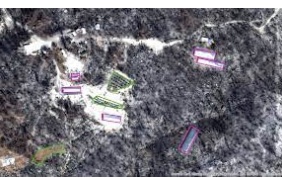Corruption in California’s cannabis industry has become widespread and brazen.
There have been pay-to-play schemes, including a demand for cash in a brown paper bag for a pot license, threats of violence against local officials, and city council members accepting money from cannabis businesses even as they regulated them.
Those problems and more were uncovered by a sweeping Los Angeles Times investigation last year. Now state officials are launching an audit aimed at curtailing bribery, conflicts of interest and other misdeeds.
The inquiry, requested by Assemblyman Reggie Jones-Sawyer, D-Los Angeles, and authorized Wednesday by the state Joint Legislative Audit Committee, comes more than six years after California voters approved Proposition 64, the ballot measure that legalized recreational cannabis and unleashed a wave of corruption that has afflicted local governments in rural Northern California enclaves and towns like Calexico near the Mexican border.
Other state lawmakers have proposed hearings and reforms following The Times’ “Legal Weed, Broken Promises” investigative series, which also highlighted the failures of public officials to root out the illegal cannabis market and protect the workers toiling and dying on farms.
State auditors plan to identify six jurisdictions with licensed cannabis businesses and review criteria used to approve the permits, reviewing local governments that have been rocked by corruption allegations and others that appear to have fewer such problems.
They’ll be looking for patterns in the licensing rules that indicate whether certain practices are “more susceptible to fraud and abuse,” State Auditor Grant Parks told lawmakers Wednesday. They’ll also be reviewing a “fairly good sample” of cannabis permits to check whether local authorities followed rules they had set, he said.
The findings could form the basis for legislation and new regulations governing licensing, Parks said.
In an interview, Jones-Sawyer hailed the action as a step toward reform.
“If we don’t clean house, nobody else will. I think this will prove to the public that we take corruption very seriously,” said Jones-Sawyer, who declared himself the state’s “cannabis cop” after publication of the Times investigations.
Proposition 64 left ultimate business licensing in the hands of cities and counties. Part-time, often low-paid local elected officials became gatekeepers over decisions worth potentially millions of dollars to business owners in the hyper-competitive cannabis market.
The state’s dual state and local licensing system is widely blamed for creating a fertile ground for corruption. The Times investigation uncovered a possible six-figure bribe demand by the former mayor in Baldwin Park — later corroborated by a federal plea agreement — and other potential conflicts of interest around the state.
At Wednesday’s hearing, Amy Jenkins, representing the California Cannabis Industry Assn., blamed local regulations for the corruption problem, arguing that measures such as license caps allowed municipal leaders to pick winners and losers in the market and open up opportunities for payoffs.
Fewer than half of California’s cities and counties allow some type of cannabis business — retail, cultivation, manufacturing or other types of licenses — to operate within their borders. The audit, Jenkins said, could lead to more “liberal” local regulations that reduce opportunities for payoffs and allow more cannabis businesses to open.
“Legal cannabis has failed and will continue to fail until we are able to fully integrate cannabis into our economy,” she said.
Assemblyman Jim Patterson, R-Fresno, agreed that there was an “undercurrent of misconduct” in cannabis licensing. He suggested that his own community be among those examined to determine which practices are least likely to lead to corruption.
“Fresno’s now the fifth-largest city in the state of California, it’s the capital city of a significant region of the state. For whatever it’s worth I think the Fresno region ought to be considered part of that,” Patterson said.
Previous attempts by Jones-Sawyer to investigate corruption in the weed industry had been stymied, with lobbyists for local communities arguing against such proposals, calling them politically motivated, he said.
But with the Times series on the failures of Proposition 64, a new committee chair and the latitude to pick which cities to target, Jones-Sawyer said he was finally was able to marshal enough support to get the audit approved.
No one at Wednesday’s hearing opposed the plan.
“Going from, I had to fight just to get it heard to where it’s now a unanimous decision, I think people now understand how important it is to ferret out corruption, even if it’s just one elected official,” he said.
Source: https://www.record-bee.com/2023/03/24/california-launches-probe-of-cannabis-licensing-to-clean-house-of-corruption/


 Cannabis News2 years ago
Cannabis News2 years ago
 One-Hit Wonders2 years ago
One-Hit Wonders2 years ago
 Cannabis 1012 years ago
Cannabis 1012 years ago
 drug testing11 months ago
drug testing11 months ago
 Education2 years ago
Education2 years ago
 Cannabis2 years ago
Cannabis2 years ago
 Marijuana Business Daily2 years ago
Marijuana Business Daily2 years ago
 California2 years ago
California2 years ago
















